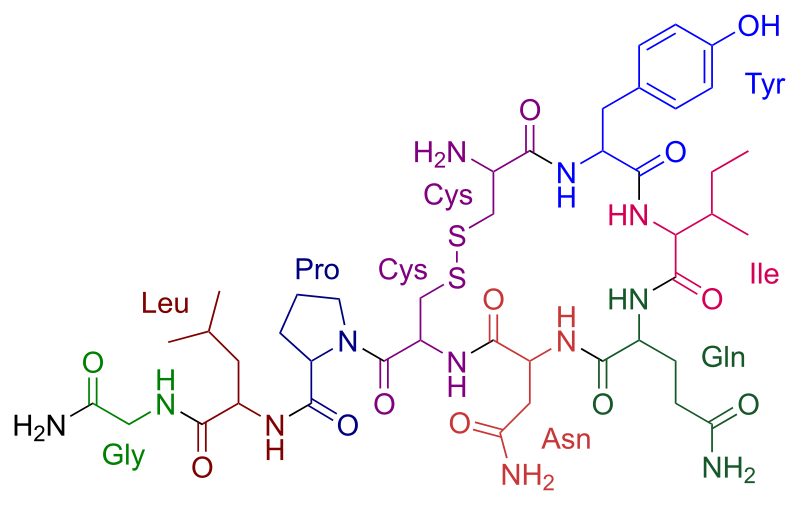Oxytocin är ett peptidhormon som har stor betydelse för människors förmåga att knyta an till varandra. Under lång tid har forskare misstänkt att oxytocin kan påverka sociala interaktioner hos personer med autism, en sjukdom som delvis karaktäriseras av sociala svårigheter. Trots att många studier har undersökt detta har resultaten varierat och därför är oxytocinets eventuella effekter på autism fortfarande en obesvarad fråga. En ny studie som publicerats i PNAS bidrar dock med nya, betydelsefunna kunskaper inom detta område.
Den nya studien utfördes på ett mindre antal barn med autism som slumpmässigt tilldelades antingen oxytocin eller placebo. Barnen undersöktes med funktionell magnetröntgen samtidigt som de fick genomföra tester som antingen involverade sociala stimuli (känslor och ansiktsuttryck) eller icke-sociala stimuli (bilar och andra fordon). Resultaten visade att oxytocin ökade aktiviteten i hjärnregioner involverade i empati och belöning när försökspersonerna utförde det sociala testet men minskade aktiviteten i dessa regioner under det icke-sociala testet.
Forskarna bakom studiet hoppas att resultaten på sikt kan leda till farmakologisk behandling av autism, något som i nuläget inte existerar. Det är dock värt att nämna det i nuläget är oklart huruvida det är ofarligt att ge oxytocinbehandling under längre tid.

Oxytocin is a peptide hormone that has important implications for people’s ability to connect with each other. For a long time, scientists have suspected that oxytocin could affect social interactions in people with autism, a disorder that is partially characterized by social difficulties. Although many studies have examined this, the results have varied and therefore the possible effects of oxytocin on autism remain an unanswered question. A new study published in PNAS contributes with new significant knowledge within this field of research.
The new study was conducted on a small number of children with autism who were randomly assigned to either oxytocin or placebo. The children were examined with functional MRI while they were conducting tests that either involved social stimuli (emotions and facial expressions) or non- social stimuli (cars and other vehicles). The results showed that oxytocin increased activity in brain regions involved in empathy and reward when subjects performed the social test, but decreased activity in these regions during the non- social test.
The researchers behind the study hope that the findings could eventually lead to pharmacological treatments for autism, something that currently does not exist. However, it is worth mentioning that it is currently unclear whether it is safe to give oxytocin treatment for longer time periods.